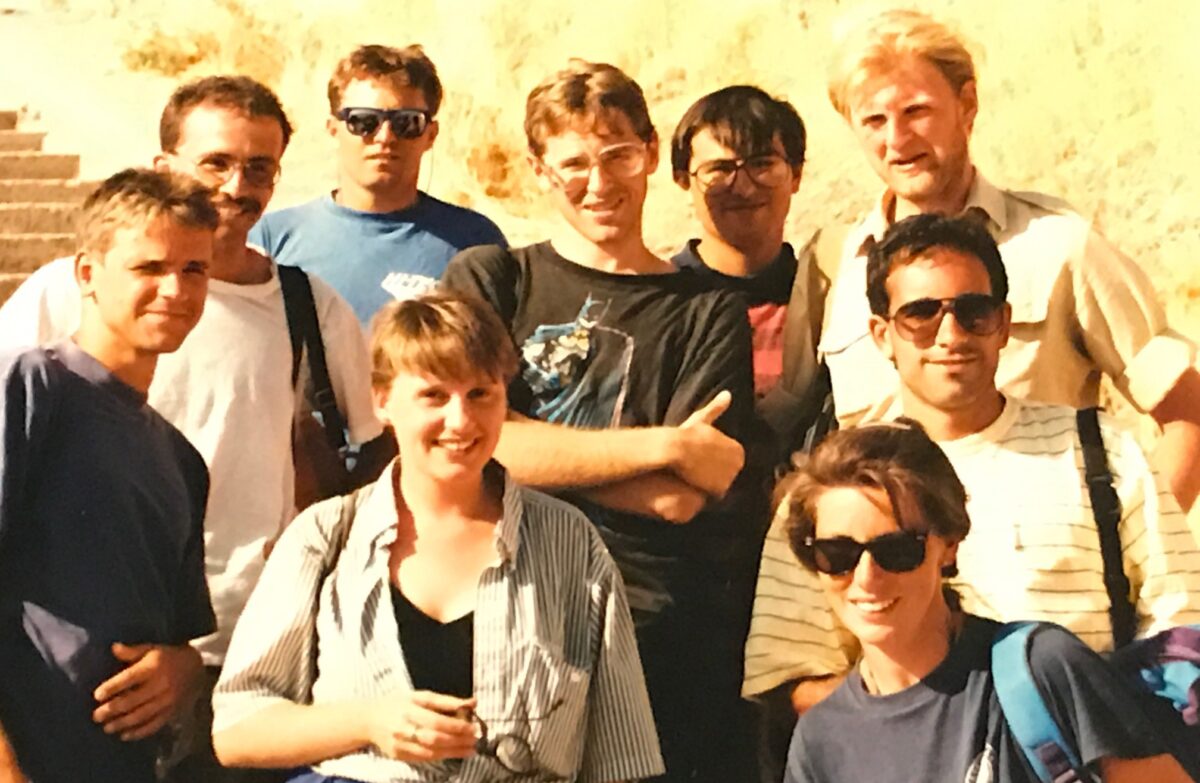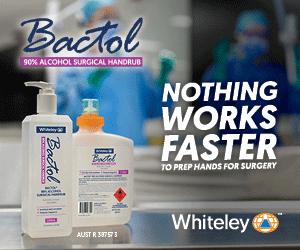As a freshly minted history graduate in his early 20s, Simon Auty was backpacking in Turkey some 30 years ago when he witnessed two horrific deaths within days of each other.
“We were just walking along a street and this guy was walking in front of us, and this other guy was walking in the opposite direction, and he pulled out a gun and shot the guy in front of us,” Auty recalls. “You’re just kind of going ‘what the hell is going on, are we in danger?’ The guy who pulled the trigger just turned a corner and walked away.” Shot point blank in the chest, the victim was unlikely to have survived, he says.
‘Her mum was absolutely distraught, and I thought — I can do something about this, I can help people’
At the time, he was in eastern Turkey, close to what was then the USSR-border, where there was unrest with the ethnic Kurdish population seeking an independent state. The next day, they saw a village burn and police told them it had been an attack by a Kurdish guerrilla group – “so it was all tied into that, it was an assassination”.
Just a few days earlier, Auty had witnessed a four-year-old girl fall from a train in front of her mother. She was fatally injured and died before his eyes. “Her mum was absolutely distraught, and I thought ‘I can do something about this, I can help people’,” Auty said. “I remember thinking: ‘If I knew something more, I could do something rather than just standing there like a spare prick at a wedding.
“I trained as soon as I got back basically.”
Nursing also ran in his family, with an aunt, great aunt and several cousins who were nurses. Auty’s mother also trained as a nurse but got married before she completed it — students weren’t allowed to marry at the time.

But it was hard to find work when he graduated from Nelson Polytechnic in 1993. Hospitals — run then by crown health enterprises (CHEs) — were reluctant to take on inexperienced new graduates and there were no supported entry-to-practice programmes for them, as there are today.
“We had only 60 of us graduated in my year and about a third went overseas, because there was no work — they went to America or Australia.”
‘I had some hope that we could actually achieve something, we could advocate for members.’
At the time, when nursing jobs were scarce, then-minister of health Jenny Shipley said market forces would dictate nurses’ wages. “Well okay . . . let market forces dictate now, amid a worldwide massive shortage of nurses,” says Auty. “So, the chickens have come home to roost.”
He went on to apply for a job at Blenheim’s Wairau Hospital, where managers said they had no jobs but suggested he volunteer instead.
“I made my feelings known that I was not prepared to do volunteer work as a nurse,” says Auty, who was raised by unionists. His grandfather was a watersider, involved in the extensive 1951 waterfront strikes. Originally from Bergen, Norway, the seafarer had “jumped ship” in Dunedin in 1940 when Germany invaded Norway during WWII. But it was his teacher father who Auty said “probably unionised me as much as anybody else”.

Instead, Auty found a caregiving role looking after a woman who had endured multiple strokes. “She was in a wheelchair and would have epileptic fits and go into status epilepticus [seizures]. So I would have to sedate her when she crashed, as she would fall out of her chair, and get her in an ambulance and send her to hospital.”
Auty was paid $119 per week by the Department of Social Welfare – equivalent to the domestic purposes benefit. “It was all you could get and that was what you did.”
In the deep end
After six months, he landed a job at Whānganui Hospital as a theatre transport nurse. “I was literally taking people to and from theatre, that was my job,” said Auty, who was keen to get into perioperative nursing. He also found himself the only male nurse living in the Whānganui nurses’ home — the only other men being a couple of anaesthetic technicians.
One day Auty was in sole charge of maintaining an airway for a unconscious patient in the post-anaesthetic care unit (PACU). “No-one had taught me how to recover a patient or anything, I’d be holding an airway and not knowing what the hell to do . . . it seemed half an hour but was probably only five minutes.”
A senior nurse noticed, and later “bailed up the charge nurse” to ask for better on-the-job teaching. “So then they taught me how to be a PACU nurse.”

A year later, he landed a theatre nursing role at Rotorua Hospital, which was “fantastic”, before heading to Waikato Hospital where he learned “heaps”. Waikato did “everything — plastics, cardiac, thoracic, vascular. The only thing they didn’t have was neuro, but at least once a month we had to do a burr hole [hole drilled in skull] on somebody in the middle of the night if Auckland couldn’t take them”.
One unforgettable operation he was involved with was a hemicorporectomy – “basically cutting off the lower half of [a patient’s] body”. Run over by a motorbike, a man had instantly become a paraplegic, his lower body gradually deteriorating, requiring repeated surgery to remove “a little bit off and a little bit more off” every few months until they reached his pelvis. It was such an unusual procedure, that the 60-year-old surgeon had last seen one when he was a registrar many decades earlier in the United Kingdom. The patient survived, but later died in hospital.
‘I made my feelings known that I was not prepared to do volunteer work as a nurse.’
Another unusually complicated surgery involved an eight-year-old boy who received a serious electric shock after climbing a power pole. “The electricity enters through his armpit and comes out through his bum – so you have to track that . . . taking out all the dead tissue all the way through.”
The child fully recovered.
After a stint in Invercargill, by 2005 Auty was in Wellington, working in the private Bowen Hospital’s ophthalmology department — where he stayed for the next 17 years. Then owned by New Zealand’s Wakefield Group, it has since moved into the hands of Australian corporate Evolution Healthcare – currently embroiled in a bargaining dispute with NZNO.

“Employers should never stop talking to their employees if they want to prevent industrial action,” says Auty, who has been out on the picket lines lately.
Nowadays, he is charge nurse of ophthalmology, ear, nose and throat and oral maxilla-facial surgery at Bowen, but still keeps his hand in public health once a week at the Wellington Hospital’s eye clinic.
Auty first ran for the NZNO board in 2019 as part of the “MAG 5”, a member action group campaigning for a more member-led organisation, which included Katrina Hopkinson, Sela Ikavuka and Anne Daniels (now president) — who all later resigned on the heels of then-president Grant Brookes, amid a leadership stoush.
Auty, however, stayed on. He wanted to push NZNO to become “a bit more active and a bit more vocal and representative of nurses and taking on the issues nurses want taking on”. At the time, he said, he felt NZNO was “kind of drifting”.
He was a keen architect of the 2020 remit to allow a non-nurse to be eligible to become NZNO’s chief executive – a change which has led to Paul Goulter’s appointment this year.

So why a second run? “It’s unfinished business,” says Auty, who ran on continuity and moving NZNO away from a corporate model. “We’ve now got to solidify those changes and keep the momentum going.”
Auty hopes the current constitutional review will lead to NZNO “becoming the organisation that nurses want it to be”.
He saw, in NZNO’s response to the COVID lockdown, how effective a unified NZNO could be. “I had some hope that we could actually achieve something, we could advocate for members.”
Rocket man
To unwind in between eye surgery and NZNO board work, Auty is an amateur rocket enthusiast – making and launching them since childhood.
“I get to launch rockets every now and then . . . not into space, but if we can get up a kilometre or so, that’d be great!”






